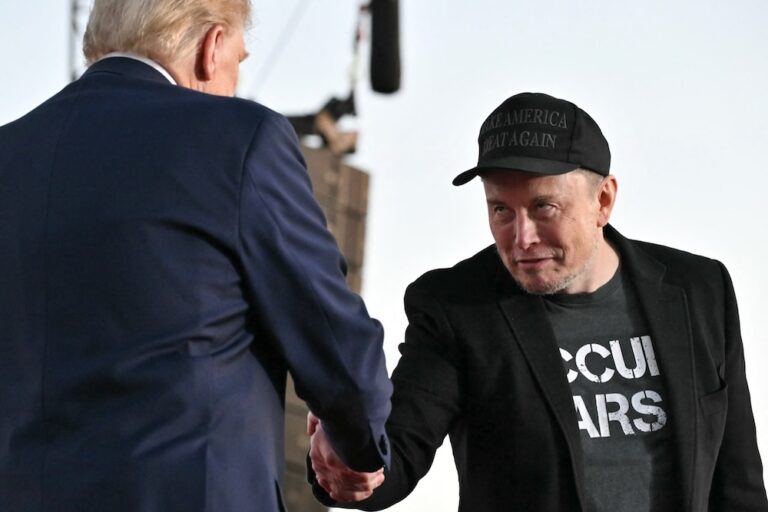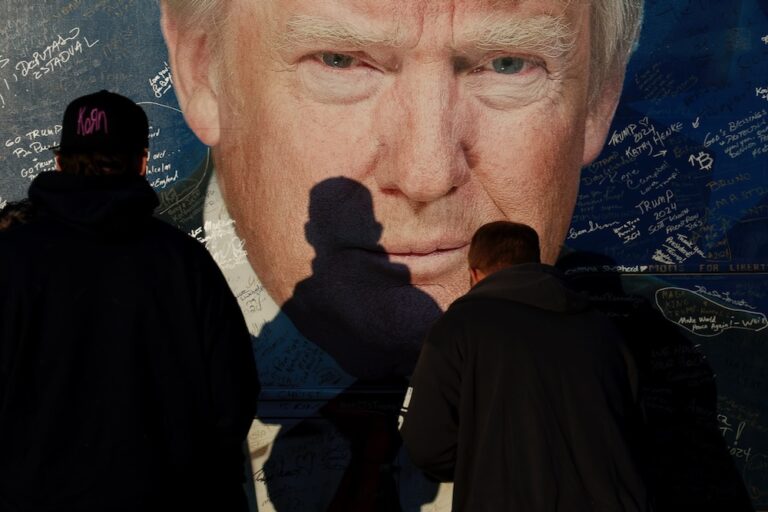(RSF/IFEX) – On 31 July 2003, RSF deplored the worsening attitude of American troops towards journalists in Iraq and urged United States (U.S.) Administrator Paul Bremer to explain why two Iranian journalists, Said Aboutaleb and Soheil Karimi, of the public television station IRIB, have been held since 1 July for alleged “security violations”. The organisation […]
(RSF/IFEX) – On 31 July 2003, RSF deplored the worsening attitude of American troops towards journalists in Iraq and urged United States (U.S.) Administrator Paul Bremer to explain why two Iranian journalists, Said Aboutaleb and Soheil Karimi, of the public television station IRIB, have been held since 1 July for alleged “security violations”.
The organisation noted that confiscations of equipment, arrests of journalists and incidents between the media and American soldiers had increased in recent days.
“The U.S.-British forces must provide convincing evidence that the Iranians have violated security [provisions] or release them at once,” RSF Secretary-General Robert Ménard said. He expressed concern over the worsening conditions for journalists and recent statements by U.S. Deputy Defense Secretary Paul Wolfowitz accusing pan-Arab satellite television stations Al-Jazeera and Al-Arabiya of airing reports encouraging violence against U.S. troops.
IRIB’s bureau chief in Baghdad, Gholem Reza Kutchak, said his two journalists, as well as an Iraqi interpreter and a driver, were arrested on 1 July by American troops and taken to U.S. army headquarters in the southern town of Diwaniah. They were working on a documentary around Al-Kut and Diwaniah. On 7 July, U.S. soldiers went to the hotel in Kerbala where they had stayed and took away their belongings. The Iranian consul in Baghdad was told by U.S. forces on 15 July that they had been transferred to the Baghdad airport detention camp.
A spokesman for the U.S.-British forces said the journalists were arrested for “security violations” and that when they were picked up they were not behaving like journalists.
In addition, on 27 July, Kazutaka Sato, of Japan’s Nippon Television Network, was beaten up by U.S. soldiers in Baghdad and detained for an hour until other foreign journalists came to find him. He was thrown on the ground and kicked after filming a U.S. army attack in the city’s Al-Mansur district, in which five civilians were killed in a raid on a house where former president Saddam Hussein was believed to be hiding. Sato’s camera was returned to him. “It seems they had something to hide, perhaps the bodies of civilians,” he said.
The newspaper “Al-Adala”, organ of Iraq’s main Shiite party, said its Baghdad offices were recently ransacked by U.S. troops.
On 26 July, four Turkish journalists -Yalçin Dogan, Özdemir Ince, Faruk Balikiçi and Ferit Aslan – were detained for an hour and a half by U.S. troops. Their equipment was returned but the photographs they had taken of soldiers with a digital camera were erased.
Also on 26 July, Al-Jazeera’s correspondent in Mosul, Nawaf Al-Shahwani, was arrested with his driver and held by U.S. troops until the night of 27 to 28 July. Their film was confiscated. Iraqi police had briefly detained a four-man Al-Jazeera team on 22 July while they were filming protests against the U.S.-British presence. The station said Iraqi police had arrested the four at the U.S. army’s request.
On 29 July, on the U.S. television network Fox, Wolfowitz charged that Al-Jazeera and Al-Arabiya were airing “false and slanted reports that are an incitement to violence” against U.S. troops. The two stations have protested against the accusations.
A report entitled “The Iraqi media three months after the war: a new but fragile freedom”, published by RSF on 23 July, expressed concern about the possible misuse of the June order by Bremer concerning “inimical media activity” (see IFEX alert of 23 July 2003).


